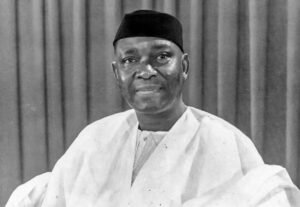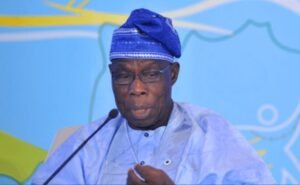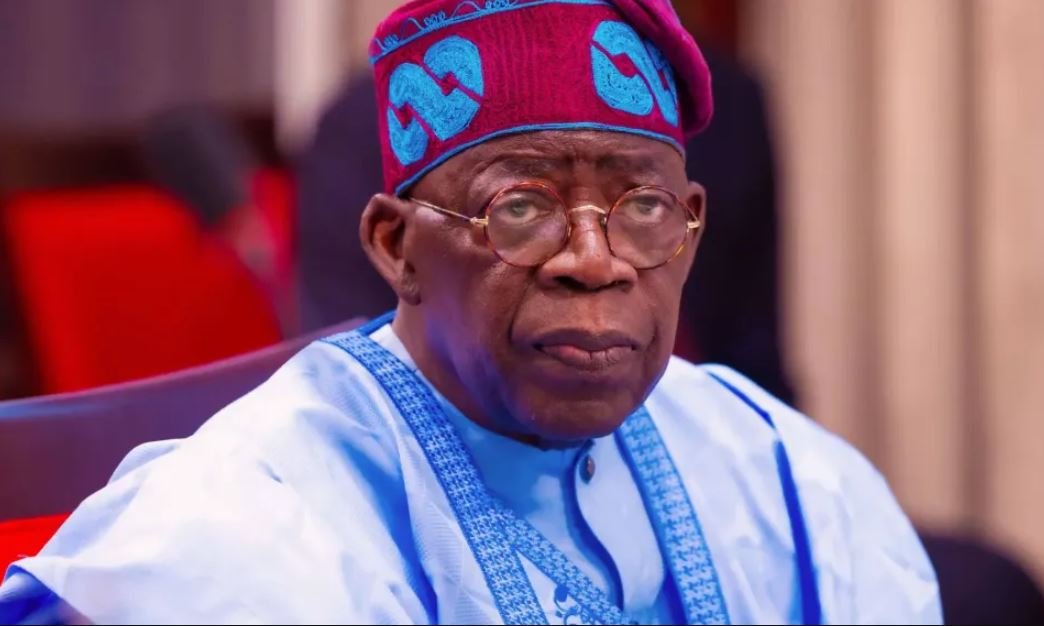Since gaining independence in 1960, Nigeria has had a total of 16 leaders, including both civilian presidents and military rulers.
The first Prime Minister was Abubakar Tafawa Balewa, who served until a military coup in 1966. Nnamdi Azikiwe became the first President when Nigeria became a republic in 1963.
Following him, several military leaders ruled, including Yakubu Gowon and Murtala Mohammed. In 1999, Nigeria returned to civilian rule with Olusegun Obasanjo as president. Other notable presidents include Goodluck Jonathan and Muhammadu Buhari.
READ ALSO: Complete List Of LGAs In Gombe State And Their Chairmen
List Of Presidents Of Nigeria From 1963 Till Date
| Name | Years | Political Party |
|---|---|---|
| Nnamdi Azikiwe | 1963-1966 | NCNC |
| Johnson Aguiyi-Ironsi | 1966 | Military |
| Yakubu Gowon | 1966-1975 | Military |
| Murtala Mohammed | 1975-1976 | Military |
| Olusegun Obasanjo (1st term) | 1976-1979 | Military |
| Shehu Shagari | 1979-1983 | NPN |
| Muhammadu Buhari (1st term) | 1983-1985 | Military |
| Ibrahim Babangida | 1985-1993 | Military |
| Ernest Shonekan | 1993 | None (Caretaker) |
| Sani Abacha | 1993-1998 | Military |
| Abdulsalami Abubakar | 1998-1999 | Military |
| Olusegun Obasanjo (2nd term) | 1999-2007 | PDP |
| Umaru Yar'Adua | 2007-2010 | PDP |
| Goodluck Jonathan | 2010-2015 | PDP |
| Muhammadu Buhari (2nd term) | 2015-2023 | APC |
| Bola Ahmed Tinubu | 2023-present | APC |
Who Was The First President Of Nigeria?

Nnamdi Benjamin Azikiwe, born on November 16, 1904, in Zungeru, Nigeria, was the first president of Nigeria. He was from the Igbo ethnic group, and his father worked as a clerk for the British administration.
Growing up, Azikiwe attended different mission schools across Nigeria. He became fluent in several Nigerian languages, including Hausa, Igbo, and Yoruba.
In 1925, Azikiwe traveled to the United States for his higher education. He studied at Storer College and later graduated from Lincoln University with a degree in Political Science.
He also earned two master’s degrees, one from Lincoln University and another from the University of Pennsylvania. While in the U.S., Azikiwe became involved in Pan-Africanism, which promoted unity and independence for African countries.
After returning to Africa in 1934, Azikiwe worked as a journalist, using his writing to advocate for Nigerian independence.
He founded the African Morning Post in Ghana, which became an important platform for promoting African nationalism.
In 1937, Azikiwe came back to Nigeria and co-founded the National Council of Nigeria and the Cameroons (NCNC), a political party that was instrumental in Nigeria’s push for independence.
Azikiwe’s political career grew when he was elected to the Nigerian Legislative Council in 1947. From 1954 to 1959, he served as the Premier of the Eastern Region of Nigeria.
His leadership was instrumental in Nigeria’s journey to independence from British colonial rule, which was achieved on October 1, 1960.
Initially, Azikiwe became Governor-General, but on October 1, 1963, Nigeria became a republic, and he became its first president.
His presidency was troubled by political instability and ethnic conflicts, which eventually led to a military coup on January 15, 1966, ending his time in office. Azikiwe stayed active in politics until 1986, and he passed away on May 11, 1996, at the age of 91.
READ ALSO: List of Governors of Rivers State and Their Deputies
Who Was The Longest-Serving President In Nigeria’s History?

The longest-serving president in Nigeria’s history is Olusegun Obasanjo, who ruled the country for a total of about 11 years and 230 days.
He served as both a military ruler and an elected civilian president. Obasanjo was born on March 5, 1937, in Abeokuta, Nigeria.
He was educated at the Nigerian Military Training College and later studied at the University of London. His military career took off when he joined the Nigerian Army.
During the Nigerian Civil War (1967-1970), Obasanjo played an integral part as a military leader. His skill and leadership during the war earned him much respect, leading to his appointment as the Chief of Staff, Supreme Headquarters.
Obasanjo first came into power after a military coup in 1975 that removed General Yakubu Gowon. He officially became the head of state on February 13, 1976, after the assassination of General Murtala Mohammed.
During his military rule, Obasanjo worked on national reconciliation and economic reforms. One of his most notable actions was peacefully handing over power to a civilian government on October 1, 1979, led by Shehu Shagari, making him the first military leader in Nigeria to transfer power to a civilian government.
In 1981, Obasanjo was imprisoned for allegedly plotting another coup against the government, but he was released in 1998 when Nigeria was transitioning back to democracy.
He then ran for president under the People’s Democratic Party (PDP) and won the election in 1999. Obasanjo’s presidency, from May 29, 1999, to May 29, 2007, focused on different reforms to improve Nigeria’s economy and infrastructure.
Though Obasanjo is credited with stabilizing Nigeria’s democracy, his time in office was also criticized for corruption and human rights violations.
READ ALSO: List Of Governors Of Ekiti State (1999-Present)
Who Is The Current President Of Nigeria?

Bola Ahmed Adekunle Tinubu is the 16th and current president of Nigeria. He took office on May 29, 2023. Tinubu is a strong politician with a long and influential career in Nigerian politics.
He was born on March 29, 1952, in Lagos, Nigeria, into a Muslim family from the Yoruba ethnic group. Tinubu spent his early life in southwestern Nigeria before moving to the United States in the 1970s.
He studied accounting at Chicago State University, and he graduated in 1979. After returning to Nigeria in the 1980s, Tinubu worked as an auditor for Mobil Oil.
He became active in politics in the 1990s and was elected as the governor of Lagos State in 1999, serving two terms until 2007.
During his time as governor, he made notable changes that helped Lagos become one of the most economically vibrant states in Nigeria.
After leaving office, Tinubu became a powerful political figure, known for helping to choose winning candidates for different positions.
He was instrumental in the election victories of former President Muhammadu Buhari in 2015 and 2019. Because of his influence, he is often called “the Godfather of Lagos.”
In the 2023 presidential election, Tinubu ran under the ruling All Progressives Congress (APC) party. His campaign slogan, “Emi lo kan,” means “it’s my turn” in Yoruba.
He won the party’s primary election in June 2022 and then won the general election in March 2023, receiving over 8.8 million votes.
He beat his main rivals, Atiku Abubakar from the Peoples Democratic Party and Peter Obi from the Labour Party. As president, Tinubu faces many challenges.
These include issues like insecurity, an economic crisis, fuel and power shortages, and corruption. One of his first major decisions was to end a long-standing fuel subsidy, which was praised by the World Bank but led to protests from labor unions.
After negotiations, an agreement was reached. At 71 years old, Tinubu is the oldest person to become president of Nigeria.
Some people have raised concerns about his health, questioning whether he is fit for office. However, Tinubu has reassured the public that he is capable of leading Nigeria, which is Africa’s most populous nation. Despite the challenges and controversies, Tinubu is seen as a strong political leader.

